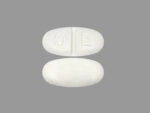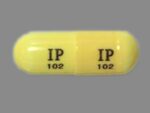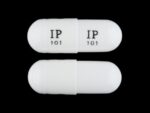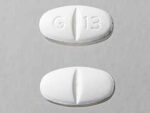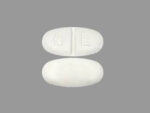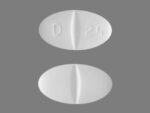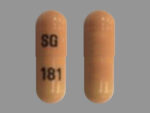Showing all 7 resultsSorted by popularity
-
Gabapentin 1600 mg
$306.00 – $344.00Buy Now This product has multiple variants. The options may be chosen on the product page -
Gabapentin 300 mg
$234.00 – $282.00Buy Now This product has multiple variants. The options may be chosen on the product page -
Gabapentin 100 mg
$35.42 – $141.68Buy Now This product has multiple variants. The options may be chosen on the product page -
Gabapentin 800 mg
$282.00 – $329.00Buy Now This product has multiple variants. The options may be chosen on the product page -
Gabapentin 1200 mg
$297.00 – $337.00Buy Now This product has multiple variants. The options may be chosen on the product page -
Gabapentin 600 mg
$252.00 – $308.00Buy Now This product has multiple variants. The options may be chosen on the product page -
Gabapentin 400 mg
$242.00 – $297.00Buy Now This product has multiple variants. The options may be chosen on the product page
Gabapentin belongs to a class of drugs called Gamma-Aminobutyric Acid Analogs. It is the brand name of Anticonvulsants and is sold under the brand names Neurontin, Gralise, and Horizant. Gabapentin works by decreasing the activity of a subset of calcium channels. Know the function of the medicine before buying Gabapentin online.
It works on the chemical messengers in your brain and nerves. It appears to work by altering electrical activity in the brain and influencing the activity of chemicals called neurotransmitters, which send messages between nerve cells.
Gabapentin was first approved for use in the U.S.A. in the year 1993 for adults. In the year 2000, Gabapentin for children was approved. Its generic version was introduced in the year 2004. It is one of the most prescribed medicines in the U.S.A.
Proper Ways To Take Gabapentin:
Take Gabapentin exactly as prescribed by the doctor in the prescription. Any overdose or underdose or completely stopping it immediately can harm the health of a person.
Some certain rules and principles should be followed before taking Gabapentin. These are:
- Read the medication guide before taking it.
- Measure the oral liquid concentrate with the calibrated dropper and mix the concentrate with a small amount of liquid or food.
- Swallow the tablet whole. Do not crush, break, cut, chew, or dissolve it.
- Do not pre-soak, lick, or wet the tablet before placing it in the mouth.
- Take one tablet at a time.
- Do not take this medicine through feeding tubes.
- If you are using an extended-release capsule, take it with food and with the same amount of food each time.
- If you have a problem swallowing the whole tablet, open the tablet and sprinkle it over soft food i.e. pudding yogurt, or jam, or into a cup and swallow immediately followed by a glass of water.
Composition Of Gabapentin:
Gabapentin contains both active and inactive elements. Each tablet contains 100 mg, 300 mg, or 400 mg of Gabapentin and lactose, cornstarch, talc, gelatin, titanium dioxide, FD&C Blue No. 2, yellow iron oxide (300 mg and 400 mg), and red iron oxide (400 mg) as inactive ingredients.
Dosage Of Taking Gabapentin:
The dosage of taking Gabapentin is different for different patients using it. It is also different for Epilepsy and Neuralgia.
For Epilepsy:
- Adults and children aged 12 years and above are prescribed 300 mg, 3 times a day, and can be altered by the doctor. The maximum dose is 600 mg.
- Children aged between 3 to 11 years of age are prescribed 10 to 15 mg per one kg body weight of the person divided into 3 equal dosages. The dosage can be altered by the doctor.
- For children aged below 3 years, dose and use are to be determined by the doctor.
For Neuralgia:
- For adults, 300 mg per day in a single dose in the evening, and the dose may be altered by the doctor. The maximum dose can be up to 1,800 mg.
- For children, use and dose are to be determined by the doctor.
Overdose:
An overdose of any medication is dangerous to our health, so an overdose of Gabapentin also has some bad effects on our health. Overdose of Gabapentin leads to severe drowsiness, trouble speaking, weakness, sedation, blurred vision, slurred speech, somnolence, uncontrollable jerking motions, and anxiety.
Missed Dose:
Taking medicine at an improper time and irregularly leads to a missed dose. People after missing a dose usually take a double dose which leads to an overdose. In case you miss a dose, do not panic. Take the dose immediately continue with your regular dose or consult your doctor.
Withdrawal Symptoms:
Symptoms that are shown when any medicine is stopped suddenly or accidentally are called withdrawal symptoms. All Anticonvulsants have their withdrawal symptoms, hence Gabapentin. The symptoms are agitation, confusion, disorientation, sweating, tremors, tachycardia, hypertension, and insomnia.
How Gabapentin Relieves Pain:
Gabapentin is a product of Anticonvulsants. It works in the brain to prevent seizures and relieve pain for certain conditions in the nervous system. It prevents the increase in sensitivity to pain that occurs. And mirrors the effects of GABA calming excited neurons. It blocks pain by affecting the pain messages traveling through the brain and down the spine.
Storing Procedure Of Gabapentin:
Gabapentin is stored under the following procedure:
- Gabapentin is stored at a temperature between 20- 25 degrees Celcius i.e. 68- 77 degrees Fahrenheit i.e. at room temperature.
- It should be kept away from light and moisture.
- Do not store this in the bathroom.
- It should not be kept inside the refrigerator.
Side Effects Of Gabapentin:
Any medicine when used improperly shows dangerous side effects hence Gabapentin shows. It shows both common and serious side effects.
Common Side Effects:
The common side effects are:
- Dizziness
- Sleepiness
- Water retention
- Constipation
- Vomiting
- Upset stomach
- Chills
- Cough
- Fever
- Cold like symptoms
- Hoarseness and dry mouth
- Trembling
- Weakness
Serious Side Effects:
The serious side effects are:
- Chest pain
- Diarrhea
- Increased appetite
- Blurry vision
- Bruising
- Changes in mood
- Fatigue
- Memory loss
- Mouth ulcers
- Shortness of breath
- Sore throat and swollen glands
- Trembling
- Urinary problem
- Uncontrollable eye-rolling
- Behavioral problems
- Hyperactivity
- Lack of concentration
Alternatives For Gabapentin:
There are both natural and medicinal alternatives for Gabapentin.
Natural Alternatives:
- Cayenne
- Vitamin B12
- Zinc
- Exercise
Medicinal Substitute:
- Cymbalta
- Elavil
- Hydrocodone
- Oxycodone
- Lidoderm
- Lyrica
Precautions And Warnings:
Some precautions are needed to be taken by patients suffering from severe pain before taking Gabapentin. These are:
- Test whether you are allergic to any other analgesics.
- Describe both your physical and mental history before the doctor.
- Tell your doctor if you were drug abused in the past as Gabapentin is habit forming.
- Gabapentin is not prescribed for those who have kidney disease, liver disease, glaucoma, lung/ breathing problems, or mental disorder.
- As drowsiness is one of its side effects, one should not drive, should not operate any machine, or do any serious work as it can be dangerous.
- Do not wake up suddenly after sleep as it causes lightheadedness, dizziness, and fainting.
- Do not take Gabapentin if you are a daytime sleeper or a night worker.
- Using Gabapentin while pregnant can cause birth defects or life-threatening symptoms in the newborn.
- Breastfeeding mothers are advised to first consult a doctor and follow the advice.
Other Medicine And Food Interactions:
One should make it clear to the doctor if he/she is taking any other medicines before the doctor prescribes Gabapentin as it can be dangerous if some specific medicines are taken with it.
Medicine Interactions:
Do not take these medicines with Gabapentin:
Food And Beverage Interaction:
Do not take these food items and beverages with Gabapentin:
- Grapefruit
- Grapefruit juice
- Alcohol
- Cannabis
- Cigarette
- Alcohol leads to drowsiness. So taking alcohol along with Gabapentin can cause severe drowsiness, dizziness, tiredness, and body imbalance.
- Cigarette smoking with Gabapentin may decrease the effectiveness of the drug.

